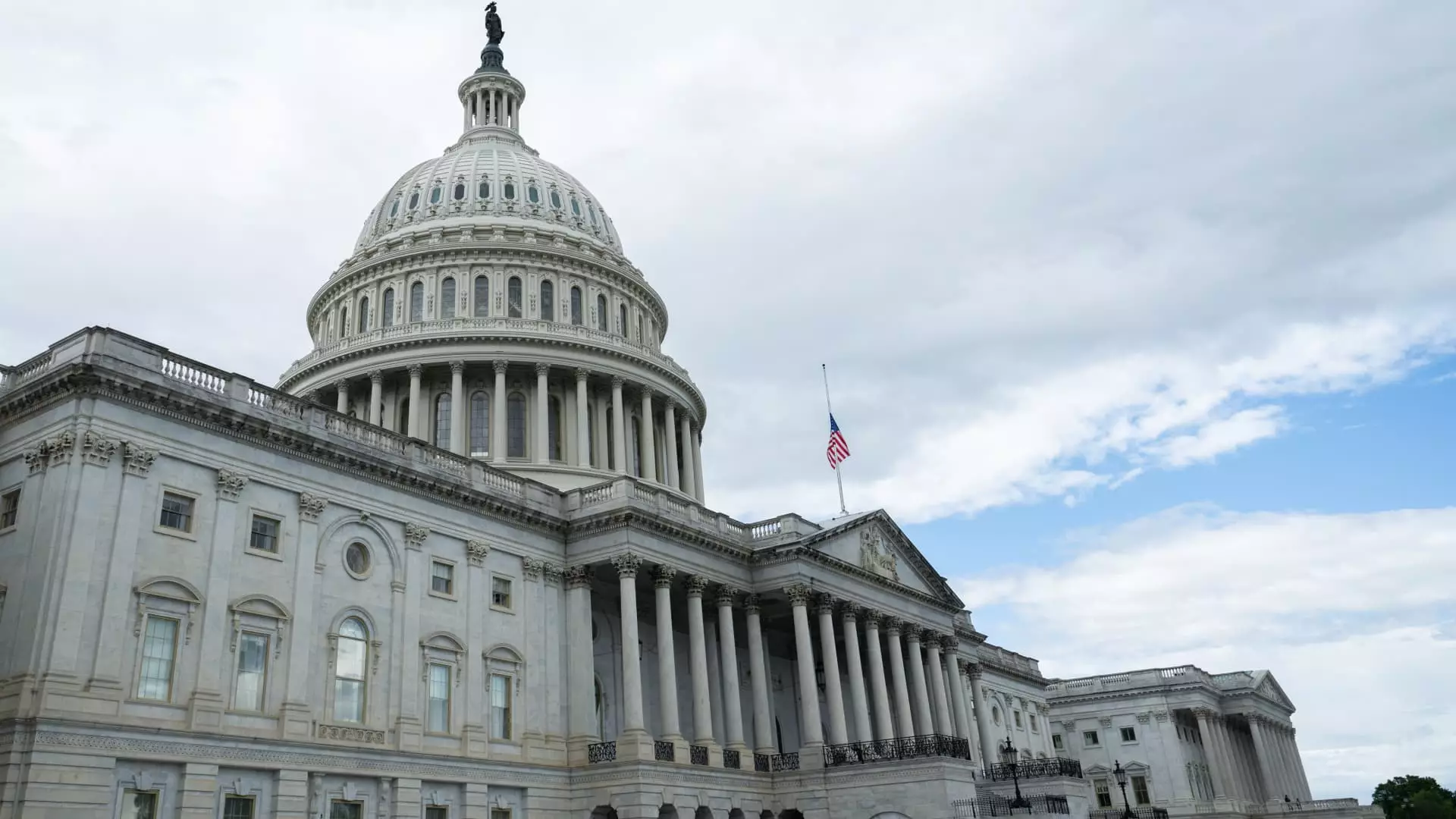It’s no secret that tax cuts often stir up fierce debate among lawmakers and economists alike. However, the implications of the recent package passed by House Republicans in May are staggering and deserve closer scrutiny. The legislation, cloaked in promises of prosperity, threatens to add nearly $3.1 trillion, possibly up to $3.8 trillion, to the national debt over the next decade when factoring in interest. This isn’t merely a number; it represents a ticking time bomb of fiscal irresponsibility—a fact underscored by Rep. Thomas Massie, who rightfully labeled it a “debt bomb.” On the face of it, tax cuts are alluring; who doesn’t want their paycheck to be a little heftier? Nevertheless, the underlying consequences reveal a daunting reality that could jeopardize not only current economic stability but also the financial futures of everyday Americans.
House Republicans’ Dangerous Gamble
The recent tax cuts reflect a glaring ideological shift within the Republican Party, one that prioritizes the interests of wealthy individuals over the stability of the lower and middle classes. This bill portrays a dramatic increase in budget deficits, similar to a reckless gambler who places high-stakes bets without considering the risks involved. By cutting taxes particularly for affluent households—upward of $4 trillion, according to reports—Republicans seem to be wagering against sound economic judgment. In these times of increased scrutiny on how governmental financial decisions trickle down to affect the average citizen, this legislation seems to exploit fiscal policies without a safety net. It’s disheartening to see a party so willing to champion tax cuts for a select few, virtually ignoring how increased national debt burdens will segregate financial wellness even further.
The Threat of Rising Interest Rates
A higher debt burden isn’t merely an abstract concept; it has tangible ramifications for consumers who will inevitably feel the pinch. Rising national debt has a direct correlation with increased interest rates, which means consumers will pay more for mortgages, loans, and car financing. With the Federal Reserve tightening monetary policy, the ripple effect will likely crush aspirations for homeownership, particularly among first-time buyers. As noted by Mark Zandi, chief economist at Moody’s, the crux of consumer economics lies in the link between Treasury yields and the everyday financing costs that people face. Rising interest rates due to market perceptions of instabilities in U.S. debt could quickly push many individuals into a precarious financial situation.
A Misguided Approach to National Revenue
The concept of offsetting tax cuts with spending cuts seems economical on the surface, but in practice, it can yield catastrophic societal consequences. Slashing funding for essential safety-net programs such as Medicaid and food assistance means that the lower-income demographic—the very people who are often most vulnerable—will pay the price for tax cuts benefiting the wealthiest. The justification given by some Republicans that President Trump’s tariffs would generate sufficient revenue to cover the tax shortfall is fundamentally flawed. Economists generally argue that tariffs are an unreliable source of funding, subject to the whims of political change and legal challenges. Thus, the proposal seems less about fiscal responsibility and more about political posturing, endangering the livelihoods of millions.
The Losing Game for Investors
To complicate matters further, an ever-increasing national debt poses significant risks for investors. If the government’s reckless borrowing threatens to overwhelm Treasury bonds, it will lead investors to demand exorbitant interest rates before committing capital. Philip Chao, a certified financial planner, emphasizes that the market’s risk perception will lead to volatile bond markets. This isn’t just a scenario played out in economic textbooks; it has real-world repercussions. Higher interest rates ultimately make bonds worth less, creating a domino effect that affects investment portfolios of ordinary people. It’s ironic how policies aimed at economic growth can end up diminishing wealth, especially for the very people that proponents claim to support.
Is Greed Clouding Judgment?
When legislators prioritize tax cuts for the affluent while making detrimental cuts to vital public services, one can’t help but wonder if greed overrides effective governance. The preferences of wealthy contributors often dominate policy discussions, casting shadows over the voices of ordinary citizens. Under the guise of economic progress, this kind of governance devalues the essential services that maintain societal equilibrium. By adding fuel to an already volatile financial landscape, the House Republican tax bill threatens to push the U.S. further into economic turmoil, thereby highlighting a significant systemic flaw in political decision-making.
In the end, addressing national debt should not exist in a silo of partisan politics; rather, it demands collective, responsible action. The implications of this tax cut bill underscore a stark reality: economic responsibility shouldn’t be sacrificed on the altar of tax cuts for the wealthy. It’s time for lawmakers to pivot—embracing a more holistic economic strategy that doesn’t just serve the few but nurtures the many.


Leave a Reply